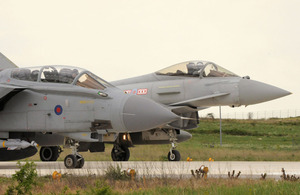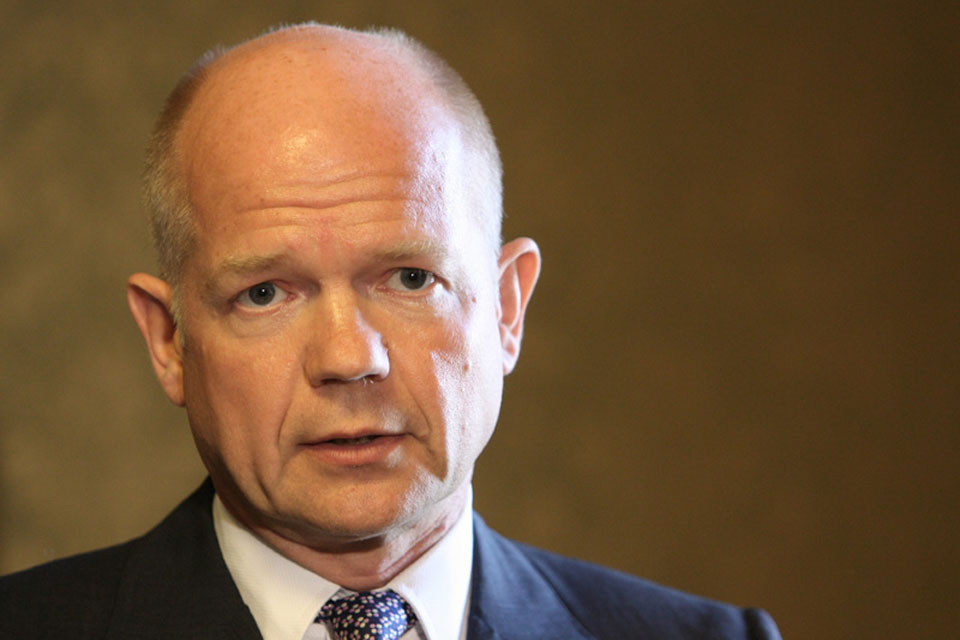RAF strikes Gaddafi hometown
British aircraft have again been in action over Libya, as part of NATO's mission to enforce UNSCR 1973, including an attack on a headquarters bunker in Muammar Gaddafi's hometown of Sirte.

Royal Air Force Typhoon and Tornado GR4 aircraft power up on the threshold at Gioia del Colle air base in southern Italy (stock image) [Picture: Sergeant Pete Mobbs RAF, Crown Copyright/MOD 2011]
RAF Tornado aircraft located and destroyed one of Colonel Gaddafi’s few remaining long-range surface-to-air missile systems, near Al-Watiya, close to the Tunisian border yesterday morning, Thursday 25 August 2011.
Yesterday afternoon, Tornado and Typhoon aircraft destroyed a command and control node that remained in former regime hands on the road south from Tripoli to the International Airport.
At around midnight last night, a formation of Tornado GR4s, which had launched from RAF Marham, in Norfolk, on a long-range strike mission, fired a salvo of Storm Shadow precision guided missiles against a large headquarters bunker in Gaddafi’s hometown of Sirte.

Foreign Secretary William Hague [Picture: Crown Copyright/FCO 2011]
Speaking after chairing a meeting of the National Security Council on Libya this week, the UK’s Foreign Secretary, William Hague, said:
We are monitoring the diplomatic, military and humanitarian situation in Libya, as we have been, of course, throughout this crisis in Libya over the last five or six months.
The immediate military situation is that NATO forces have been active again and it’s important to stress that Operation UNIFIED PROTECTOR goes on. It is not over.
NATO has decided to continue its operations for as long as it is necessary, to protect the civilian population of Libya from the forces that remain loyal to the Gaddafi regime. United Kingdom forces will continue to take part in that. Our resolve is unwavering on this as, of course, it has been throughout this crisis.
And so, it’s important to stress that those operations go on. The Gaddafi regime is finished. There is no way back for the Gaddafi regime, and clearly many of its key members are on the run.
But there remain forces active loyal to the Gaddafi regime, concentrated particularly in the south of Tripoli and around the city of Sirte, and as long as that remains the case, and they remain a threat to the civilian population, then the NATO operations will continue.
So this is not over yet. The regime is finished, but fighting in Libya as everybody can see from their television screens is not over yet.
We remain in very close touch with the National Transitional Council, who we recognised several weeks ago as the legitimate governing authority in Libya. Now the priority is to give them very strong diplomatic support, to assist them in building a better future, a free democratic and inclusive future for Libya.
At the moment that takes several forms and, this week and next week, there will be intense diplomatic activity in order to bring this about.